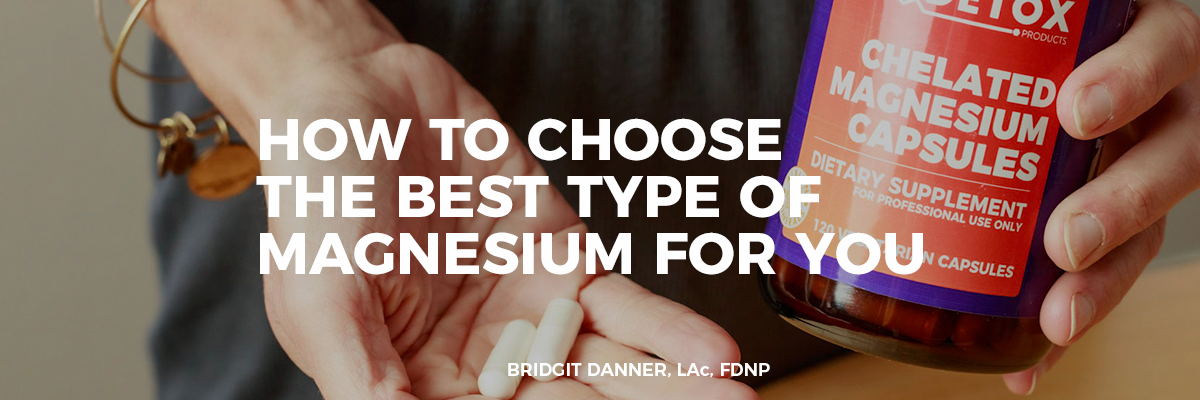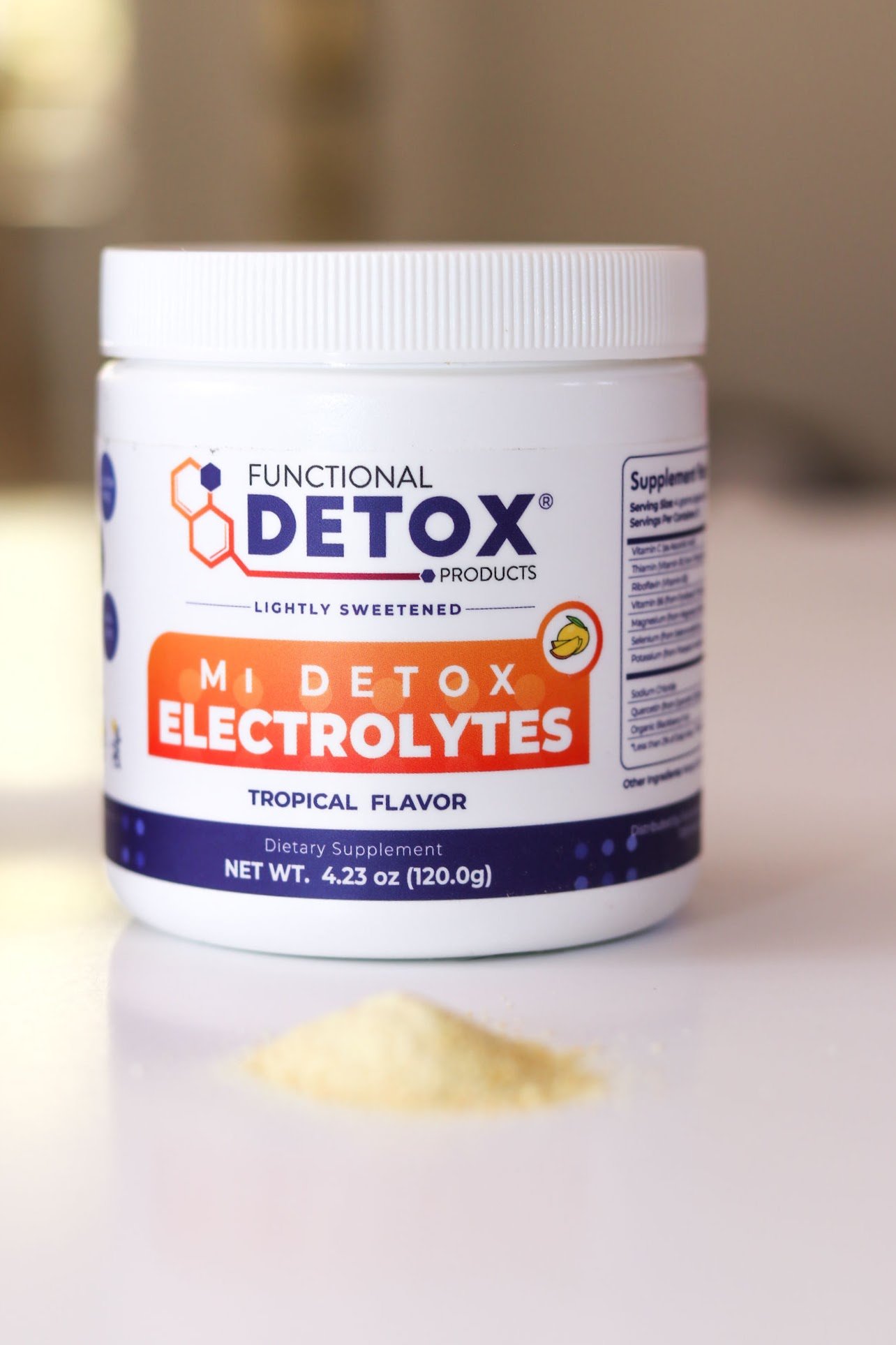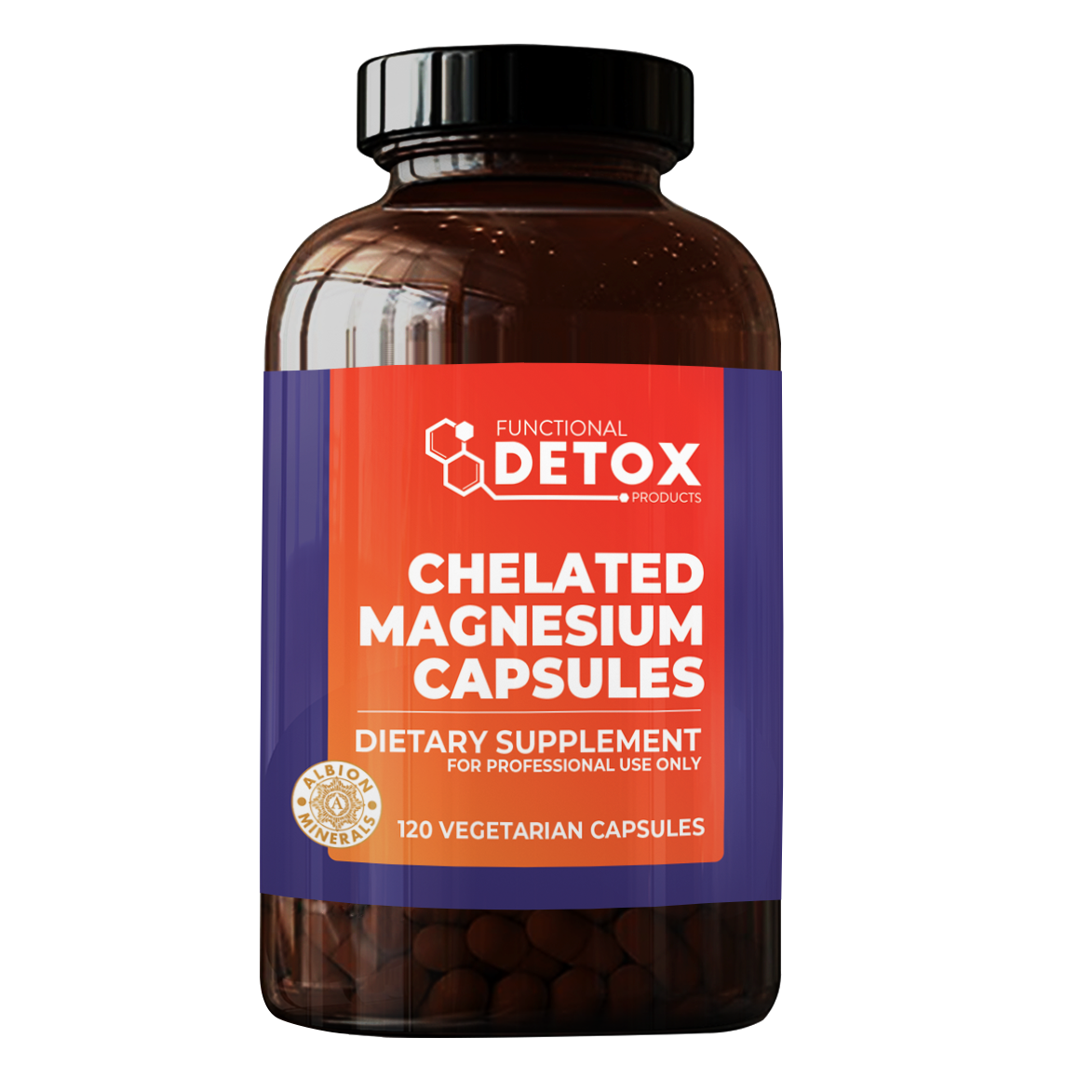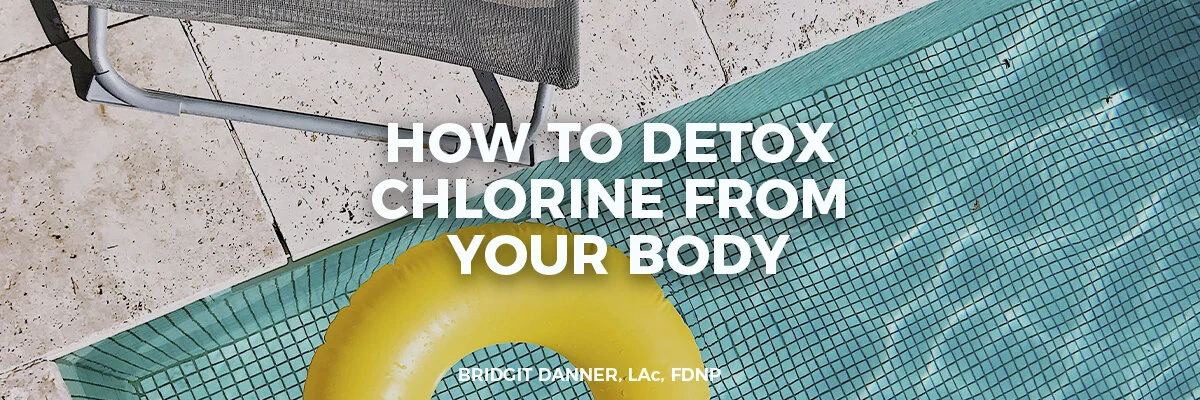How to Choose the Best Type of Magnesium for You
Magnesium, dubbed “nature’s chill pill,” is a mineral involved in over 300 crucial biological processes. (1) It plays a vital role in muscle and nerve function, mood, metabolism, bone health, detox, ATP formation, and much more.
Yet, nearly half of Americans struggle to get enough magnesium from diet alone. (2) “No worries!” you say. “I’ll just take a magnesium supplement.” Problem solved, right?
Well, not exactly. There are a ton of different types of magnesium. So, choosing one isn’t as easy as you think.
Wander down any supplement aisle, check out the bottles, and you’ll likely get confused. You may even flashback to high school science class. Chloride, lactate, threonate, oxide, orotate, glycinate, citrate, etc. Why are there so many? And which one do I pick?
I get it. Choosing the best magnesium supplement for your body is tricky. Some don’t absorb well, while others can cause tummy issues.
But don’t worry. In this article, we’ll go over five different types of magnesium and explain the upsides (and downsides) of each one. Let’s do this!
Which Is the Best Magnesium to Take?
Magnesium supplements are made by binding magnesium molecules to a carrier of some kind. This could be an amino acid such as taurine or glycine, or an organic acid like citrate or lactate. Attaching magnesium to a carrier helps your body recognize and absorb it better.
The carriers are where all the confusing names come in. Malate, chloride, glycinate, sulfate, and taurate all refer to specific carriers for that form of magnesium.
All well-absorbed forms of magnesium will yield health benefits. Yet, some will be a better fit than others, depending on your unique health goals.
Here are five different types of magnesium and their benefits. Take note of which one sounds like the right fit for you.
Magnesium Citrate: Helpful for Constipation
If you tend to get “backed up,” then magnesium citrate may be your answer. This combo of magnesium and citric acid has an osmotic effect on the body, drawing water into the intestines. This promotes healthy bowel movements by making your stools softer and easier to pass. (3)
Magnesium citrate is also inexpensive and easily absorbed. However, you’ll want to watch it on your dosage. Take too much, and it may cause stomach upset or loose stools.
Magnesium Malate: Helpful for Energy
If you struggle with fatigue, magnesium malate may be a good fit. This well-absorbed form combines magnesium with malic acid. (4) Malic acid is a fruit acid found in apples and pears, but it's also naturally produced when your body converts carbs into energy (known as ATP).
Both malic acid and magnesium are critical for producing ATP, the energy currency of your cells. This form of magnesium would be an amazing option for anyone needing an energy boost. However, magnesium malate can be overstimulating for some. If you choose this one, be sure to take it in the morning so it won’t interfere with your sleep.
Our Mi Detox Electrolytes give you a low dose of magnesium malate for cellular energy as you hydrate and detox! Check them out below.
Magnesium Taurate: Helpful for Heart Health
This form of magnesium binds with taurine, an amino acid that calms the nervous system and promotes healthy circulation.
Animal studies have shown magnesium taurate to have cardioprotective effects, restoring healthy blood pressure in rats. (5) However, additional research is needed to confirm these effects in humans.
Many studies reveal both magnesium and taurine play an essential role in supporting healthy blood pressure and blood sugar levels. (6, 7, 8, 9)
Magnesium taurate is easily absorbed and would be a great choice for anyone dealing with cardiovascular issues.
Magnesium Threonate: Helpful for Brain Health
This highly absorbable form is a mixture of magnesium and threonate, a metabolite of vitamin C. What sets it apart from other forms of magnesium is its ability to cross the blood-brain barrier. (10)
Animal studies show it can improve learning and memory, making it a potential treatment for age-related cognitive decline. (11) However, additional research is needed to confirm this. If you’re looking to support your brain health, magnesium threonate may be a good option for you.
Chelated Magnesium Glycinate: Helpful for Depression, Anxiety, & Stress
Magnesium glycinate (also known as magnesium diglycinate or magnesium bisglycinate) is my personal fave, as it boasts high bioavailability and is gentle on your stomach. (12)
It’s formed by attaching one magnesium molecule to two molecules of glycine. Glycine is a calming amino acid that has been shown to improve sleep, lower inflammation, and even enhance glutathione synthesis. (13, 14, 15)
Magnesium glycinate has a relaxing effect on the body -- perfect for anyone dealing with high stress (and who isn’t these days). It reduces anxiety, soothes PMS symptoms, improves sleep, and shows promise as a natural treatment for depression. (16, 17, 18)
Due to its gentle nature, magnesium glycinate is an ideal choice if you have a sensitive tummy or need to take higher doses to correct a severe deficiency.
Prefer a Powder? Try Our Chelated Magnesium Powder
Our Chelated Magnesium Capsules is pure chelated magnesium with a little sweetness and flavor. Each teaspoon offers 300 mg. Just mix with water, sip, and feel your stress melt away. Perfect for custom dosages, kids, and an inability to swallow pills.
Meet Our Latest Magnesium: Chelated Magnesium Capsules
Magnesium bis-glycinate is the most bioavailable form of magnesium. It’s also extremely gentle, so you can take a hefty dose without any digestive upset. That makes it the perfect option for anyone looking to correct a deficiency.
These Chelated Magnesium Capsules are made from magnesium bis-glycinate chelate with the addition of magnesium oxide. While I don’t recommend anyone takes magnesium oxide on its own, paired with magnesium bisglycinate it works. This unique combination allows for a smaller pill size with simultaneous great absorption.
More about it:
Magnesium can be absorbed all along the GI tract, but the ileum of the small intestine is the site of best absorption.
Most magnesium absorption is paracellular. Tight junction proteins strip magnesium of its hydration shell to facilitate passive transport. The ideal pH for this action is 5.5 to 6.5.
Smaller magnesium loads can be handled by the active transcellular pathway in the distal colon.
Magnesium oxide is high in elemental magnesium but on its own it drives up pH, inhibiting absorption at the tight junctions.
The glycine in the magnesium bisglycinate slows this pH rise. It’s ‘buffering,’ like when your streaming video is stalled/slowed down and it says it’s buffering!
The glycine also ‘guards’ the reactive sites of absorption against phytates or other inhibitors.
Glycine keeps the compound more soluble in the intestinal tract, also increasing bioavailability.
Some magnesium will also be absorbed through the amino acid transport pathway as glycine is an amino acid.
Two small capsules will yield 300 mg of magnesium. Continued use may bring relief from:
Headaches
Muscle cramps
PMS
Brain Fog
Low Energy
Poor sleep
How Much Magnesium Do I Need?
The recommended daily intake of magnesium is 400-420 mg for men and 310-320 mg for women. (19) However, if you struggle with gut issues or take medications that inhibit magnesium absorption, you may need more.
Poor food quality, soil degradation, chronic stress, digestive disorders, and toxin exposure make it challenging to get enough magnesium from diet alone. That’s where supplementation comes in.
What Is the Best Magnesium to Take?
There are loads of different magnesium supplements available. The key is choosing one that absorbs well so you can reap the benefits of this amazing mineral (and not throw away your hard-earned money).
Get Your Magnesium!
Never shopped with us? Use code WELCOME10 at checkout to save 10% off your order.
Bridgit Danner, LAc, FDNP, is trained in functional health coaching and has worked with thousands of women over her career since 2004. She is the founder of Women’s Wellness Collaborative llc andFunctionalDetoxProducts.com.
Check out her easy 5-Day DIY Detox Guide here!














The thought of a coffee enema might leave you in shock, but it’s actually a practice that has been used for thousands of years. I’ve seen the correct implementation of coffee enemas truly transform energy, gut health, antioxidant status and more. Learn the right way to do a coffee enema!